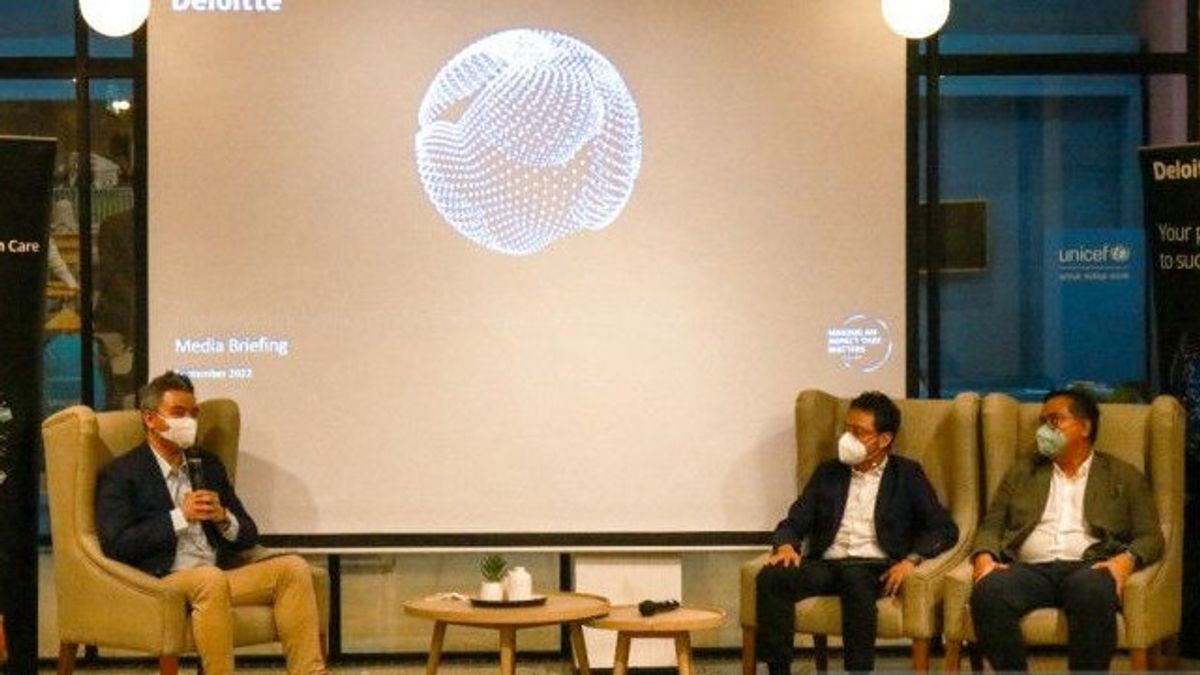JAKARTA - Digitalization has now become part of human daily life in the world, including in Indonesia. According to Deloitte Indonesia's 2022 health service digital survey published in the publication Digitising Indonesia's Health Care Sector, the majority of the public or as many as 98 percent of telemedicine users will continue to use these services in the future. In fact, around 38 percent of respondents believe that telemedicine services can replace at least a quarter of their visits to the hospital. Overall, in the survey conducted to 224 respondents, it was stated that 57 percent of respondents were satisfied with the telemedicine application services provided. Indonesia, Steve Aditya in an official statement received by Antara in Jakarta, Saturday, September 3. He said that the purpose of the survey was to dig deeper and understand the perceptions of stakeholders in the digital health service sector in Indonesia for the development of telemedicine. Therefore, respondents to this survey include users and health workers in Indonesia. Technology Media & Telecommunications Industry Leader Deloitte Indonesia Brian Indradjaja said that the development of telecommunications infrastructure, distribution networks, and logistics is very important to support digital health services today and in the future." To be able to ensure the speed of delivery of medicines and diagnostic tools so that diagnostic test samples sent to laboratories have a good shelf life," he said. digital health more evenly so that it supports the nation's productivity. He said that in the future, telemedicine services could be integrated with biogenomic technology. This technology, according to him, has the opportunity to provide health services and treatment that are more in line with the needs of each patient. different health services and patients," he said.
To support the digital health technology service, according to him, the government is implementing the Palapa Ring Project which is building a national fiber optic network of more than 35,000 km of marine cable and more than 21 km of cable on the mainland to provide 4G networks in 34 provinces, 440 cities and regencies, and in 2025 will start 5G networks throughout Indonesia. "Infrastructure development is very important for the provision of digital health services in Indonesia," said Brian. In addition to the user survey, Deloitte Indonesia conducted a survey of health workers which was attended by 30 respondents. From the survey results, it is stated that a small portion or as much as 27.8 percent of respondents feel confident in using telemedicine in their work. Meanwhile, as many as 38.80 percent felt less confident due to the quality of the equipment. In the survey, he said, that health worker respondents emphasized the importance of developing digital health technology, telecommunications infrastructure, and integrated health information systems in realizing more optimal telemedicine services. , he said, another aspect of concern for health workers is the legal umbrella which is expected to accommodate the needs of the community and provide an umbrella for health practitioners.
The English, Chinese, Japanese, Arabic, and French versions are automatically generated by the AI. So there may still be inaccuracies in translating, please always see Indonesian as our main language. (system supported by DigitalSiber.id)













